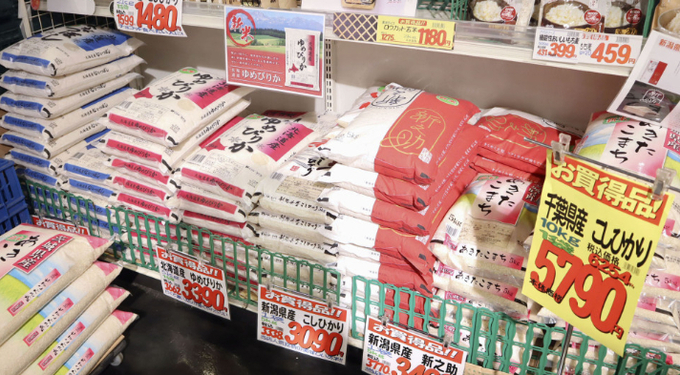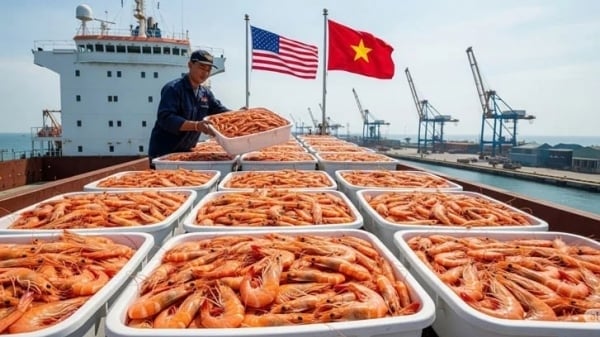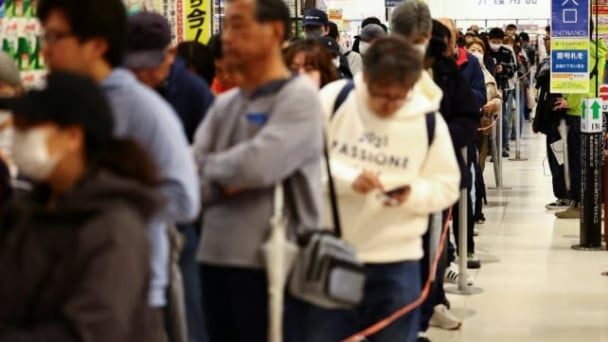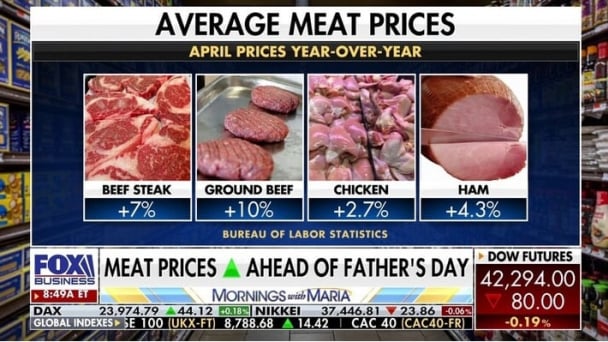June 16, 2025 | 07:00 GMT +7
June 16, 2025 | 07:00 GMT +7
Hotline: 0913.378.918
June 16, 2025 | 07:00 GMT +7
Hotline: 0913.378.918

Production volume in 2025 is expected to remain unchanged at 6.83 million tons, but demand is likely to fall to 6.63 million tons, partly due to high prices, the ministry said.
Private-sector rice inventories are projected to improve to 1.62 million tons by the end of June 2025 from an all-time low of 1.53 million tons a year earlier, the Ministry of Agriculture, Forestry and Fisheries said, boding well for the recent supply shortages and price surge caused by extreme summer heat that reduced the previous season's harvest.
But the price of rice, a staple food, may remain relatively high, as inflation is expected to keep production costs such as for utilities and fertilizers elevated, observers said.
Regarding demand, the ministry believes the long-term downward trend will remain unchanged, with recent demand growth simply the result of a slower pace in rice price increases than those of noodles and bread and more consumption in restaurants on the back of the current booming inbound tourism.
Production volume in 2025 is expected to remain unchanged at 6.83 million tons, but demand is likely to fall to 6.63 million tons, partly due to high prices, the ministry said.
The supply and demand outlook may be revised, however, as some experts, in a meeting hosted by the ministry, warned that "the risk of a downturn in demand is high" due to the reversal impact of the sudden increase in demand this year and rising prices.
The ministry released an analysis of rice shortages over the summer, saying that rice supply failed to keep up with the rise in demand from stockpiling after the weather agency in August issued its first-ever advisory warning of the increased risk of a megaquake along the Nankai Trough.
(KyodoNews)

(VAN) Noting risks, report examines impacts of avian influenza, changing trade patterns since 2022, fish fraud, and shipping industry’s net-zero goals.

(VAN) Mr. Tran Quang Bao, General Director of the Forestry and Forest Protection Department, met and worked with the International Wood Products Association to promote cooperation in the field of timber trade.

(VAN) China's outbound shipments of rare earths in May jumped 23% on the month to their highest in a year, though Beijing's export curbs on some of the critical minerals halted some overseas sales.

(VAN) To sustain capital flow, administrative reform alone is not enough; what farmers truly need is an ecosystem where both government and businesses grow together in support.

(VAN) Vietnam and the United States are proactively working together, each in their own way, to ensure that every container of agricultural goods carries not just products, but also long-term trust and value.

(VAN) Stores have started selling rice from the government’s stockpile to feed demand for the staple.

(VAN) Omaha Steaks CEO says rebuilding cattle herds will take about a year to ease price pressures.